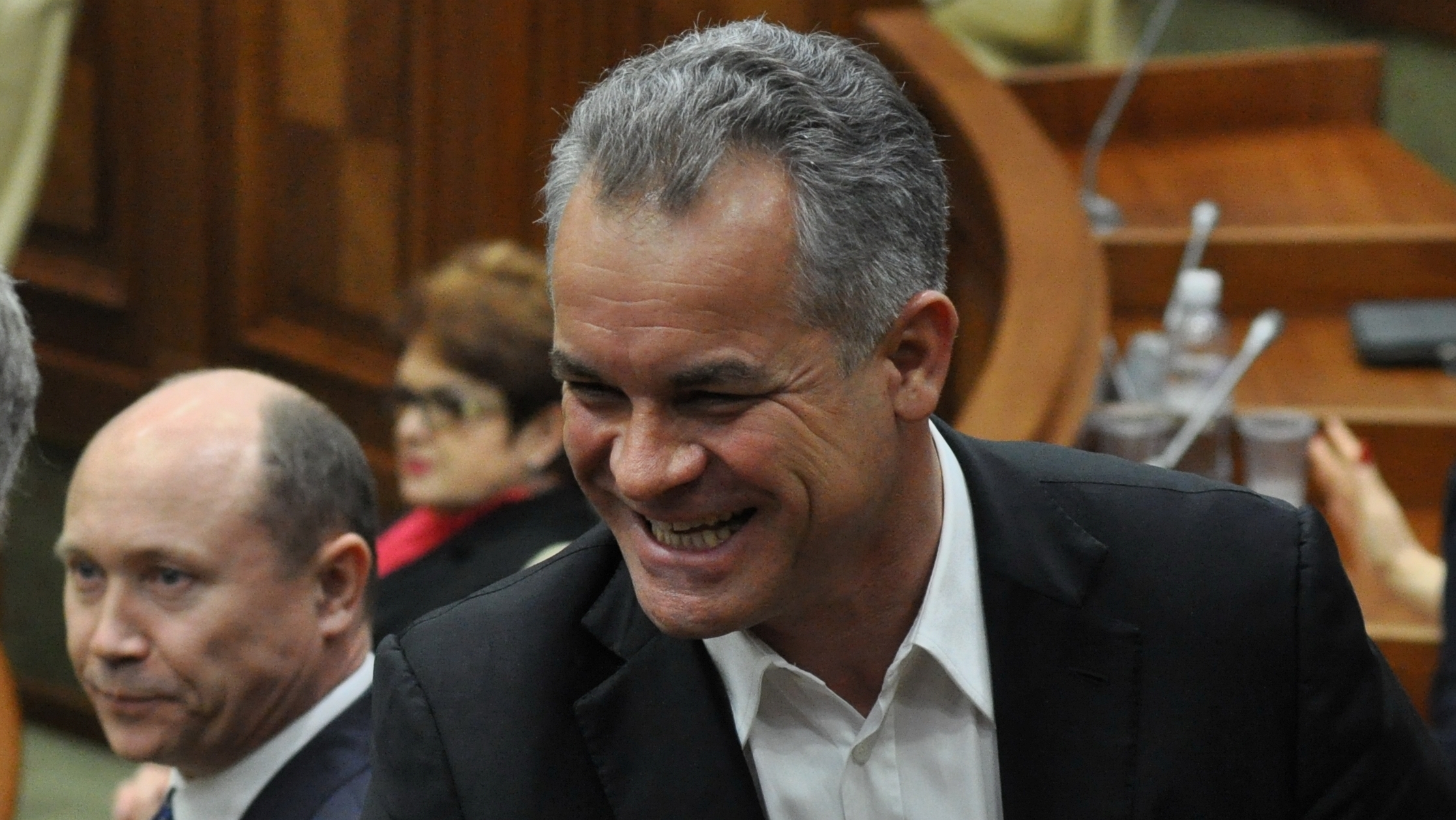
Regime Change in Moldova: Accomplished but Not Irreversible
Publication: Eurasia Daily Monitor Volume: 13 Issue: 14
By:

On January 20, the Moldovan parliament approved the new government amid violent protests outside the building and opposition protests in the chamber. A presentation of the new government’s program and a questions-and-answers session are legally required, but the ruling democratic party eliminated both from the session’s agenda, expediting it all within 40 minutes. This treatment obscured the significance of the change taking place: the end of an era, without a new era in sight.
The latest political crisis—three months of vacant government—has ended six years of rule by the nominal Alliance for European Integration. This crisis has reshaped the government and the political system in three major ways (see EDM, January 11, 12, 14, 15).
First, all pro-Western groups are now out of power, in opposition (both parliamentary and extra-parliamentary) to the new government. Second, a new governing alliance has taken shape under the control of billionaire Vladimir Plahotniuc, maximizing his influence in the state. And third, surging pro-Russia parties now constitute another center of political gravity, setting the stage for a triangular contest for power in the country.
The “pro-Europe” alliance, in power since 2009, has now been replaced by a new government with a very different configuration. It no longer includes pro-Western, right-of-center elements that used to set the tone in the former government’s foreign policy and saw their mission as turning Moldova into a European state. Those elements were being undercut and outmaneuvered even then by their partners in that pseudo-coalition; but the pro-Western component has now been driven out entirely from the government, and marginalized in parliament, as evidenced in thses proceedings (Unimedia, Ziarul National, January 20).
Plahotniuc has established a controlled parliamentary majority and put together a controlled government, short of becoming prime minister himself. His recent, failed attempt to take over as prime minister was highly uncharacteristic of Plahotniuc’s modus operandi. As a politician he had always avoided public appearances, preferring instead to operate through client networks in state institutions. With the new parliamentary coalition, however, Plahotniuc’s sphere of influence has now expanded from the judiciary and the executive branches to the legislative branch.
Opposition groups, from the pro-Western center-right (the new, diminished opposition) to the pro-Russia left (the long-time, now growing opposition) describe Plahotniuc’s far-reaching control of state institutions as “oligarchic state capture.” This assessment is on target as regards those controlled institutions, but is inaccurate about the top power holder himself. Oligarchy involves a number of peer actors in a more or less balanced, usually self-regulated, competitive system of shared power. Plahotniuc, however, has all along been incomparably stronger than any rival or group of rivals in Moldova. He is the only major financial-political operator in the country. As such he has, uniquely in Moldova, merged these two dimensions of power into his hands, at the system’s center. Plahotniuc’s agenda was not to establish an oligarchic system, but—on the contrary—to remove the basis for such a system, establishing instead a system of personal power through clienteles.
All of Moldova’s governing coalitions (2009–2015) described themselves as “pro-Europe” or “for European integration.” The credibility of that title diminished over time, but all those governments retained a pro-Western nucleus committed to European reforms. The new government, however, has no such nucleus. Its overall composition, the allegiances of many of its members, and the procedures by which this government came to power do not enable it to claim the European mantle (see below).
The six-year-old party system is being transformed. Pro-Western groups have now been reduced to a small minority in Parliament, but are gathering strength as extra-parliamentary parties of the center-right. However, pro-Russia parties show unprecedented strength of their own, in parliament and outside it, with a potential to press for regime change from the left.
Plahotniuc’s Democratic Party has successfully executed a parliamentary coup to turn the outcome of the November 2014 parliamentary elections upside down. Those results had at least formally legitimized the old coalition government, and provided the main argument against holding pre-term elections. But that foundation has now been removed.
In the 2014 elections, the three parties of the then-governing coalition obtained the following results: the Liberal-Democrats (pro-Western) 23 seats, Plahotniuc’s Democratic Party (uncommitted strategically or normatively) 19 seats, and the Liberal Party (moving from Romanian irredentism into Plahotniuc’s orbit) 13 seats. The opposition Communist and Socialist parties obtained 25 and 21 seats, respectively, in the 101-seat chamber in those elections. Subsequently the Democratic, Socialist, and Communist Party jointly voted out the Liberal-Democrat-led government in October 2015.
The parliamentary majority that approved the new government on January 20, however, is a concocted majority, a far cry from the elected one. Arranged by the Democratic Party non-transparently from late December 2015 to mid-January 2016, it is widely suspected of having been mustered through corruption, although direct material evidence is lacking. The new majority comprises: 22 Democrats, 14 Communists, 8 Liberal-Democrats, and the same 13 Liberals, for a total of 57 deputies in the 101-seat Parliament. The Democratic Party achieved this result by: a) “poaching” three deputies from other parties into its own ranks, b) consummating a long-rumored deal with most of the Communists to establish a joint “Social-Democrat parliamentary platform,” c) “incentivizing” a part of the Liberal-Democrats to change sides, and d) cementing its long-term alliance with the Liberal Party, despite the contradiction between the Democratic Party’s “Moldovanism” and the Liberals’ “Romanianism.”
The pro-Western parliamentary opposition now comprises: 11 remaining Liberal-Democrats under former prime minister Valeriu Strelet (and including the imprisoned party leader Vlad Filat) and 2 deputies of the “Iurie Leanca Group” (former prime minister Leanca has now moved from Plahotniuc’s orbit into the opposition). That side is now outweighed by the 24 Socialists and 7 remaining Communists on the Red Left (Infotag, Unimedia, IPN, January 14–20).
Three pro-Western groups—the Platform for Dignity and Truth, a nascent party of former education minister Maia Sandu, and an effort led by the businessman Ion Sturza, a former prime minister—are organizing in the extra-parliamentary arena. They are looking to pre-term parliamentary elections, possibly in the autumn. So do Igor Dodon’s Socialist Party and Renato Usatii’s Our Party in the pro-Russia camp. The installation of the new government marks the end of an era, but not the beginning of a new one.




